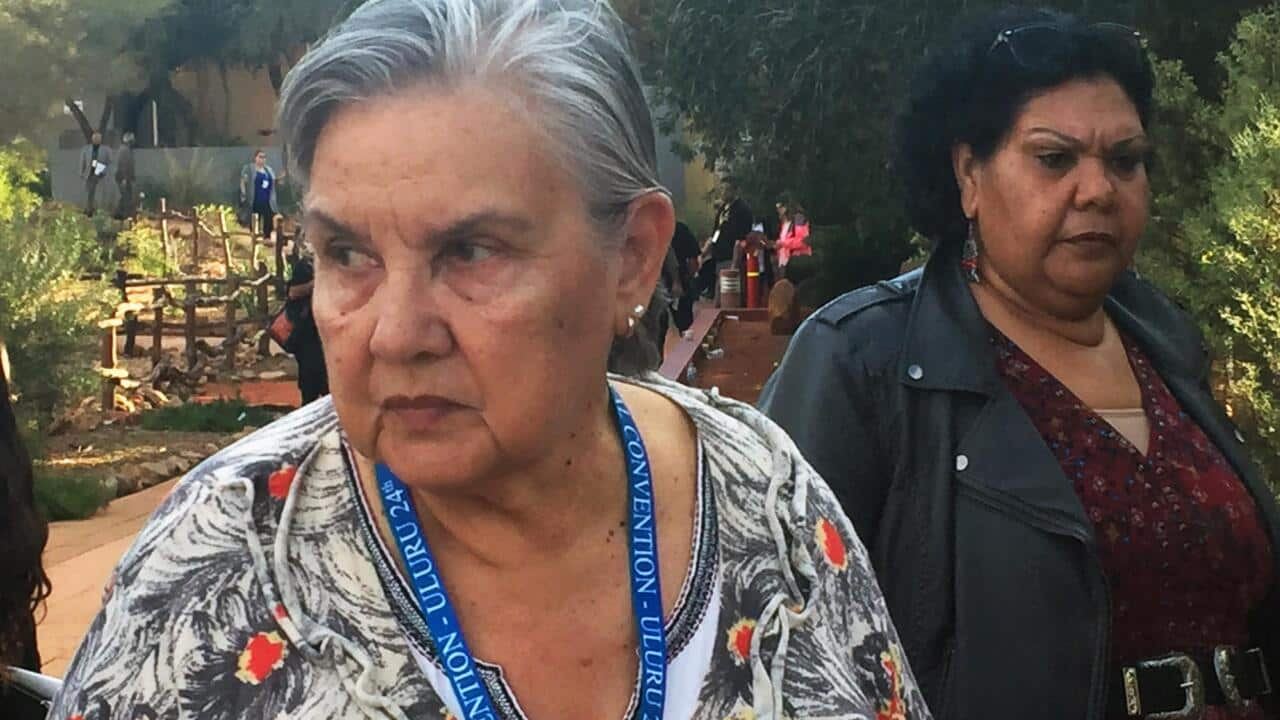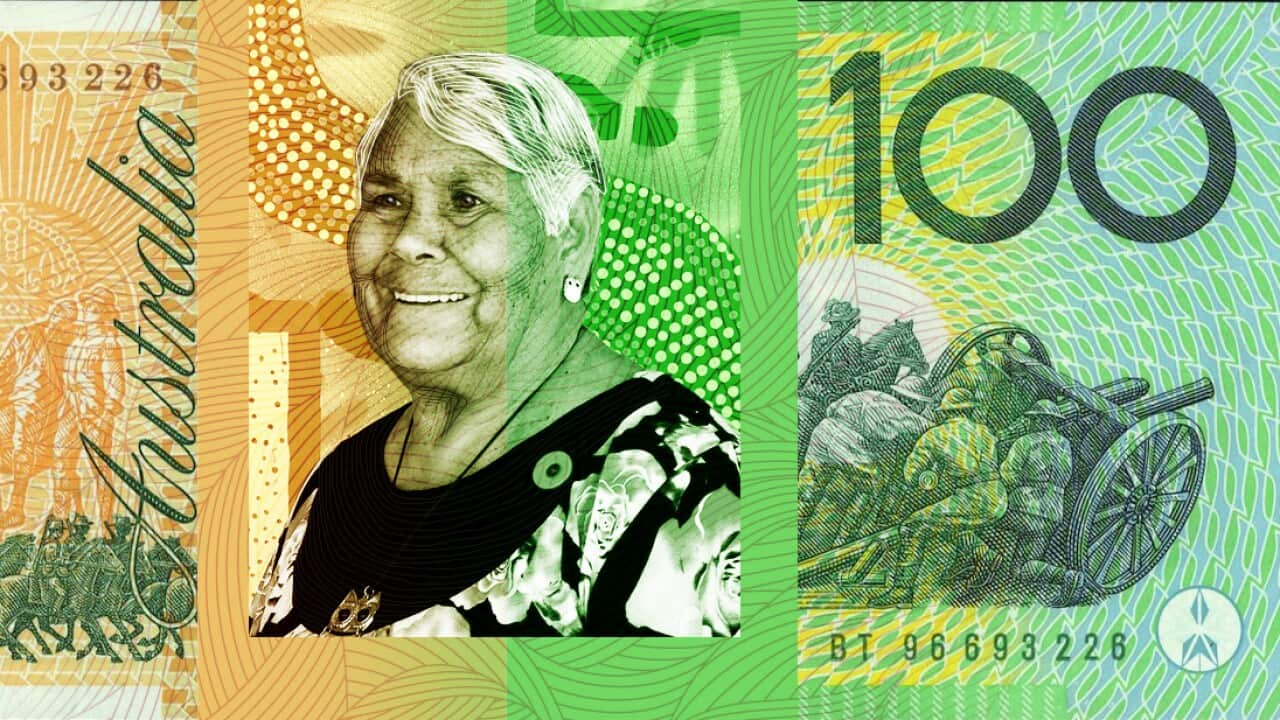They’re proud, purposeful and unwavering in their determination to make change.
More than 70 Aboriginal and Torres Strait Islander women have traveled from every state and territory to share stories and develop strategies at a national forum in Canberra.
The Straight Talk program, run by Oxfam, connects First Nations women to the political system to help them bring about change within their communities.
Birra Gubba woman Dorothy Smith works in the child safety sector.
She hopes the program will empower her to restore cultural knowledge being lost among many Indigenous children caught up in the justice and out-of-home care systems.
“With our children being taken into care and being raised by non-Indigenous foster carers and being raised with rules and regulations of a system, an institutionalised system… we’re losing sight of our cultural strength because we’re so focused on our deficits in our communities,” she said.
Ms Smith who has three children of own, one with cerebral palsy, says an optimistic outlook will help spark change. “We actually have a lot more than what we think, and we just need to embrace that… and I think that we can work better towards creating better foundations,” she said.
“We actually have a lot more than what we think, and we just need to embrace that… and I think that we can work better towards creating better foundations,” she said.

Source: Oxfam
The four-day program, launched in Parliament House on Wednesday, will see the women take part in workshops, sit in on Question Time and hear directly from female parliamentarians like Foreign Affairs Minister Marise Payne and Greens Senator Rachel Siewert.
Lead facilitator Michelle Deshong said the program provides a sense of solidarity and safeness.
“When they feel like they’re coming up against it or they just want to touch base with someone, they can draw on these women because they’ve had these experiences, they’ve had an opportunity to unpack things differently and ultimately be that momentum moving forward or change in our communities and [be] women at the forefront,” she said.
She says the summit goes much further than visiting parliament and meeting politicians.
“This is about [work] in your own communities, how you get on board in committees, how you run for council, how you start to think about state and territory representation. So we need all of our women in all of those places to be at the table and not relying on somebody else to translate or interpret for us where we are actually coming from and issues that are important to us.”  “It’s about saying to women you can be brave enough to be change-agents.”
“It’s about saying to women you can be brave enough to be change-agents.”

Source: Oxfam
Environmental worker Bianca McNeair is passionate about including more Aboriginal women in conservation and land management.
“I like to encourage our women to be part of our cultural practices… it’s a really important part of caring for country, [and] encouraging women to be trained up and qualified to take up Aboriginal ranger roles” she said.
Ms McNeair, a Malgana woman from Shark Bay in WA’s Gascoyne region, said Indigenous women play an integral role in the conservation and economy of ranger programs.
“It’s a hugely healing process not only for us as women, but for our families and also for the community that we live in, as well as the country that everybody lives on,” she said.
“I know I’ve been raised by a strong Aboriginal woman and had strong women influence me, and it’s something I want to give back to our younger women as well.” Gabrielle Hill, a 50-year-old Palawa law student from Darwin, says her troubled upbringing has motivated her to spark change in the youth justice system.
Gabrielle Hill, a 50-year-old Palawa law student from Darwin, says her troubled upbringing has motivated her to spark change in the youth justice system.

Source: Oxfam
“A lot of our kids are suffering, especially in Don Dale,” she said. “On one hand, I completely understand the culture of these kids, but on the other hand, the youth justice system isn’t working, the courts aren’t working.”
“I literally quit my job to do law and get into a space such as this, so that I can advocate for changes for both sides and to have a balance and understanding of why things are the way they are.”
She says bringing diverse women together in a safe, supported space allows them to heal and share knowledge.
“Finding that common ground and finding that basic foundation to work from to improve our relationships, not only as individuals within ourselves but within our communities… so sharing that knowledge makes one huge storybook that we can all read from.”
Oxfam Australia’s Aboriginal and Torres Strait Islander Peoples’ Program National Manager Ngarra Murray said it was encouraging to see a strong contingent of women arriving in Canberra from places such as Broome in WA, where last year’s regional Straight Talk gathering was held.
"It’s inspiring to meet with all the women taking part in this year’s Straight Talk National Summit, all of whom have taken time away from their busy lives, families, work and commitments to spend some time investing in making change for our people and communities," she said.
Over the week, participants have heard from international guest First Nations woman Karen Diver, who was an appointee of former US President Barack Obama as the Specialist Assistant to the President for Native American Affairs, and Cynthia Lui, the first Torres Strait Islander to be elected to any parliament.



